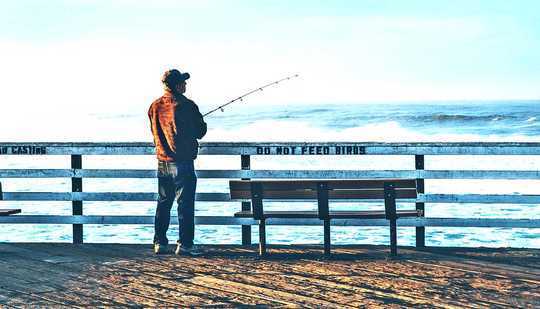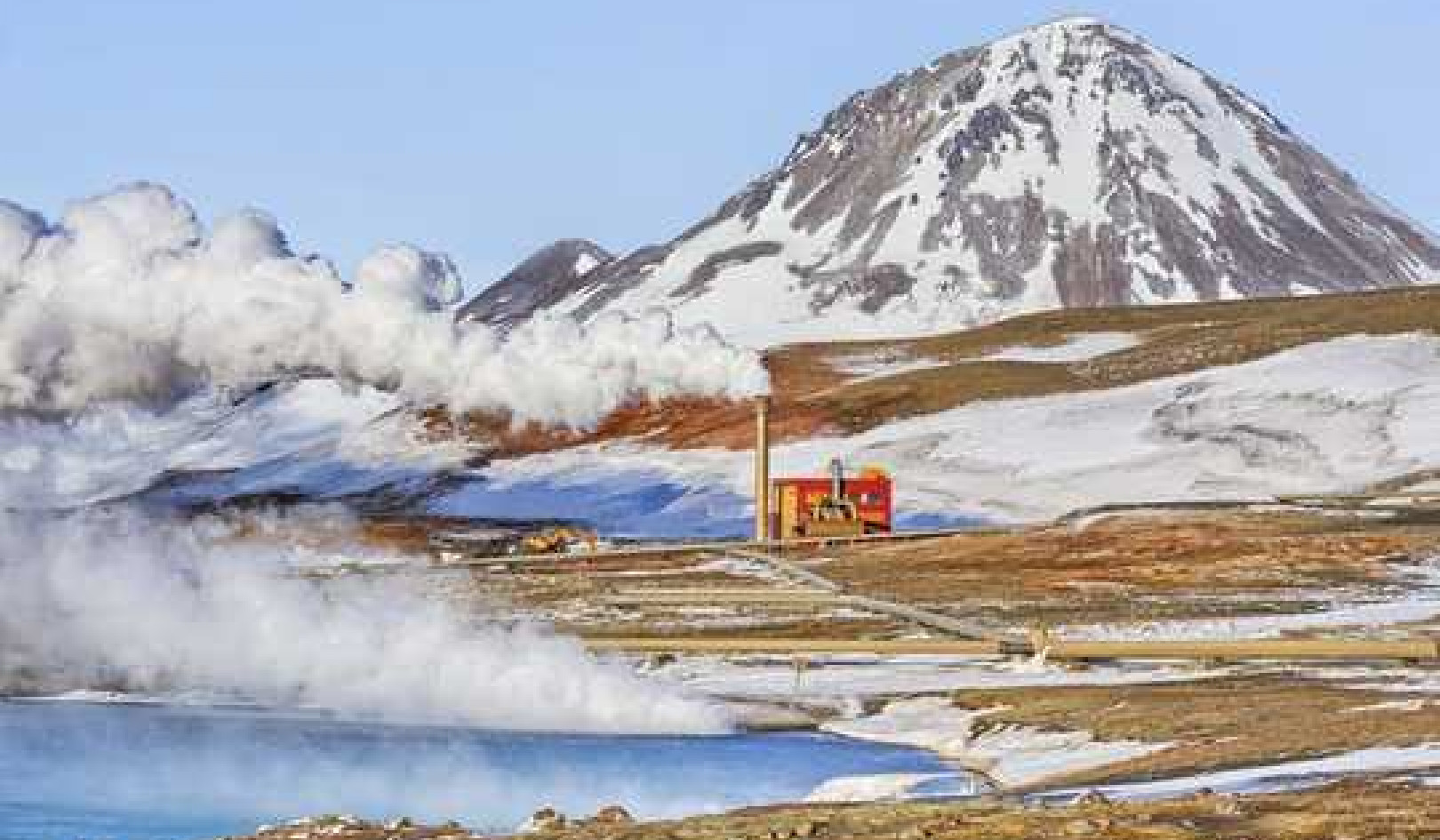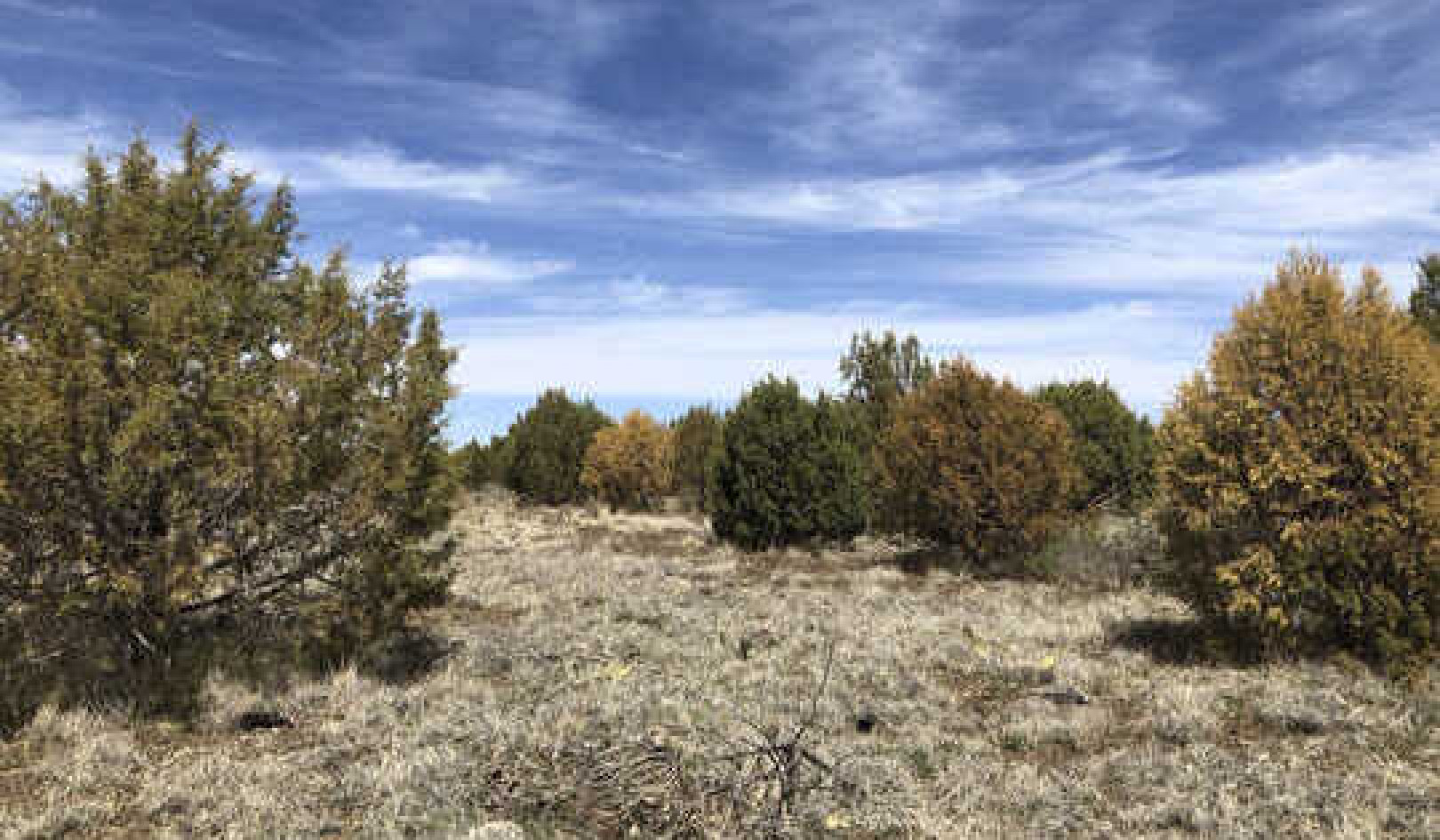
Shoreline recreational fishing will likely be another casualty of climate change, according to new research.
The study finds some regions of the US may benefit from increasing temperatures, but those benefits will be more than offset by declines in fishing elsewhere.
“If there are not significant efforts to curtail climate change, we’re looking at declines in recreational fishing participation of around 15% by 2080,” says Roger von Haefen, coauthor of the study and a professor of agricultural and resource economics at North Carolina State University.
“We also want to stress that this study looks solely at how changes in temperature and precipitation are likely to affect people’s willingness to go fishing from the shore,” von Haefen says. “This work doesn’t get at shifts in fish populations, water quality impacts, or other climate-related changes that could affect recreational fishing demand.”
To examine this issue, the researchers looked at shoreline recreational fishing data from 2004 through 2009, encompassing all Atlantic coast states, as well as Alabama, Mississippi, and Louisiana. Specifically, the researchers examined how different temperature and precipitation conditions impacted decisions to participate in recreational fishing.
They found that temperature did affect people’s willingness to go fishing, but that the relationship wasn’t linear. In other words, temperature extremes (hot or cold) tended to reduce participation relative to an “ideal” 75° F day.
“Going from chilly to balmy weather can stimulate more recreation, and our data and models bear that out,” says Steven Dundas, corresponding author of the study and an assistant professor of applied economics at Oregon State University. “But increasing temperature when it’s already hot can curtail fishing participation. For example, we estimate participation declines once daily high temperatures reach the mid-90s Fahrenheit.”
The researchers incorporated this data into a simulation model of recreational behavior. They then coupled their estimates with forecasts from 132 general circulation models, each of which predicts future weather under different greenhouse gas reduction scenarios.
“If the world adopts stringent climate change mitigation efforts, we predict a 2.6% decline in fishing participation by 2080,” Dundas says. “That’s the overall best-case scenario.”
“Worst-case scenario, we see participation drop 15% by 2080. It could drop by 3.4% in the next 30 years, and by 9.9% as early as 2050.”
“It’s important to note that this decline won’t be evenly spread across states,” von Haefen says. “Cooler areas, such as New England, may see increases in fishing, especially during the ‘shoulder’ seasons—early spring and late autumn. But hotter states, like those in the Southeast and Gulf regions, will experience significant summertime declines that will likely offset those gains.
“In addition, some people who still fish on hot days may shift the time of day when they fish. For example, our results suggest that people fish more in the early mornings and at night to avoid extreme heat.”
The paper appears in the Journal of the Association of Environmental and Resource Economists. The work took place with support from the US Department of Agriculture’s National Institute of Food and Agriculture Hatch Multi-State Project W-4133.
Source: NC State
Related Books
Life After Carbon: The Next Global Transformation of Cities
by Peter Plastrik , John Cleveland The future of our cities is not what it used to be. The modern-city model that took hold globally in the twentieth century has outlived its usefulness. It cannot solve the problems it helped to create—especially global warming. Fortunately, a new model for urban development is emerging in cities to aggressively tackle the realities of climate change. It transforms the way cities design and use physical space, generate economic wealth, consume and dispose of resources, exploit and sustain the natural ecosystems, and prepare for the future. Available On Amazon
The future of our cities is not what it used to be. The modern-city model that took hold globally in the twentieth century has outlived its usefulness. It cannot solve the problems it helped to create—especially global warming. Fortunately, a new model for urban development is emerging in cities to aggressively tackle the realities of climate change. It transforms the way cities design and use physical space, generate economic wealth, consume and dispose of resources, exploit and sustain the natural ecosystems, and prepare for the future. Available On Amazon
The Sixth Extinction: An Unnatural History
by Elizabeth Kolbert Over the last half-billion years, there have been Five mass extinctions, when the diversity of life on earth suddenly and dramatically contracted. Scientists around the world are currently monitoring the sixth extinction, predicted to be the most devastating extinction event since the asteroid impact that wiped out the dinosaurs. This time around, the cataclysm is us. In prose that is at once frank, entertaining, and deeply informed, New Yorker writer Elizabeth Kolbert tells us why and how human beings have altered life on the planet in a way no species has before. Interweaving research in half a dozen disciplines, descriptions of the fascinating species that have already been lost, and the history of extinction as a concept, Kolbert provides a moving and comprehensive account of the disappearances occurring before our very eyes. She shows that the sixth extinction is likely to be mankind's most lasting legacy, compelling us to rethink the fundamental question of what it means to be human. Available On Amazon
Over the last half-billion years, there have been Five mass extinctions, when the diversity of life on earth suddenly and dramatically contracted. Scientists around the world are currently monitoring the sixth extinction, predicted to be the most devastating extinction event since the asteroid impact that wiped out the dinosaurs. This time around, the cataclysm is us. In prose that is at once frank, entertaining, and deeply informed, New Yorker writer Elizabeth Kolbert tells us why and how human beings have altered life on the planet in a way no species has before. Interweaving research in half a dozen disciplines, descriptions of the fascinating species that have already been lost, and the history of extinction as a concept, Kolbert provides a moving and comprehensive account of the disappearances occurring before our very eyes. She shows that the sixth extinction is likely to be mankind's most lasting legacy, compelling us to rethink the fundamental question of what it means to be human. Available On Amazon
Climate Wars: The Fight for Survival as the World Overheats
by Gwynne Dyer Waves of climate refugees. Dozens of failed states. All-out war. From one of the world’s great geopolitical analysts comes a terrifying glimpse of the strategic realities of the near future, when climate change drives the world’s powers towards the cut-throat politics of survival. Prescient and unflinching, Climate Wars will be one of the most important books of the coming years. Read it and find out what we’re heading for. Available On Amazon
Waves of climate refugees. Dozens of failed states. All-out war. From one of the world’s great geopolitical analysts comes a terrifying glimpse of the strategic realities of the near future, when climate change drives the world’s powers towards the cut-throat politics of survival. Prescient and unflinching, Climate Wars will be one of the most important books of the coming years. Read it and find out what we’re heading for. Available On Amazon
From The Publisher:
Purchases on Amazon go to defray the cost of bringing you InnerSelf.comelf.com, MightyNatural.com, and ClimateImpactNews.com at no cost and without advertisers that track your browsing habits. Even if you click on a link but don't buy these selected products, anything else you buy in that same visit on Amazon pays us a small commission. There is no additional cost to you, so please contribute to the effort. You can also use this link to use to Amazon at any time so you can help support our efforts.

























